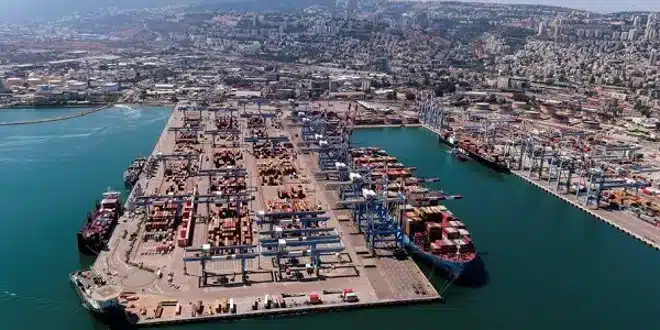Residents of Haifa, a city closely nestled against its expansive industrial port, are facing the grim prospect of a potential catastrophic explosion similar to past events. Located on a steep incline overlooking a port that houses Israel’s largest oil refinery and numerous flammable structures, Haifa’s proximity to Lebanon, just 30 kilometers away, keeps its citizens particularly vigilant.
The city still bears the scars of the 2006 conflict with Hezbollah, which saw deadly rockets reduce buildings to debris and claim lives. The catastrophic 2020 explosion at Beirut’s port, which resulted in significant casualties and widespread destruction, remains a stark reminder of what could occur.
Current tensions have been exacerbated by recent high-profile killings linked to Hezbollah and Hamas, placing Haifa in a vulnerable position as fears of retaliation grow. Patrice Wolff, a resident, expressed deep concern over the potential for disaster, reminiscent of the Beirut tragedy.
Despite the serene views from Mount Carmel across Haifa and beyond, the threat of drone attacks has heightened the sense of unease among the population of 280,000. Residents are well-versed in emergency procedures, with Wolff, employed in the medical supply sector, always keeping his phone nearby to stay alert for air raid warnings.
Tourism has dwindled under the looming threat, impacting local businesses like Humus Abu Shaker, where fewer customers venture out due to safety concerns. Yet, Nadia Abu-Shaker, a restaurateur and longtime resident, remains undeterred by the prospect of conflict, having survived numerous attacks in the past.
Haifa has prepared extensively for possible attacks, with emergency plans including shelters equipped with essential services to support the community during crises. Leonid Reznik, responsible for emergency preparedness, outlined the city’s readiness, emphasizing the inevitability of a response from adversarial forces.
Andre Suidan, a local wine shop owner, voiced distrust regarding official assurances about hazardous materials at the port, reflecting a broader sentiment of unease among residents. The city, he noted, is tense, with the palpable stress affecting daily life and community interactions.


